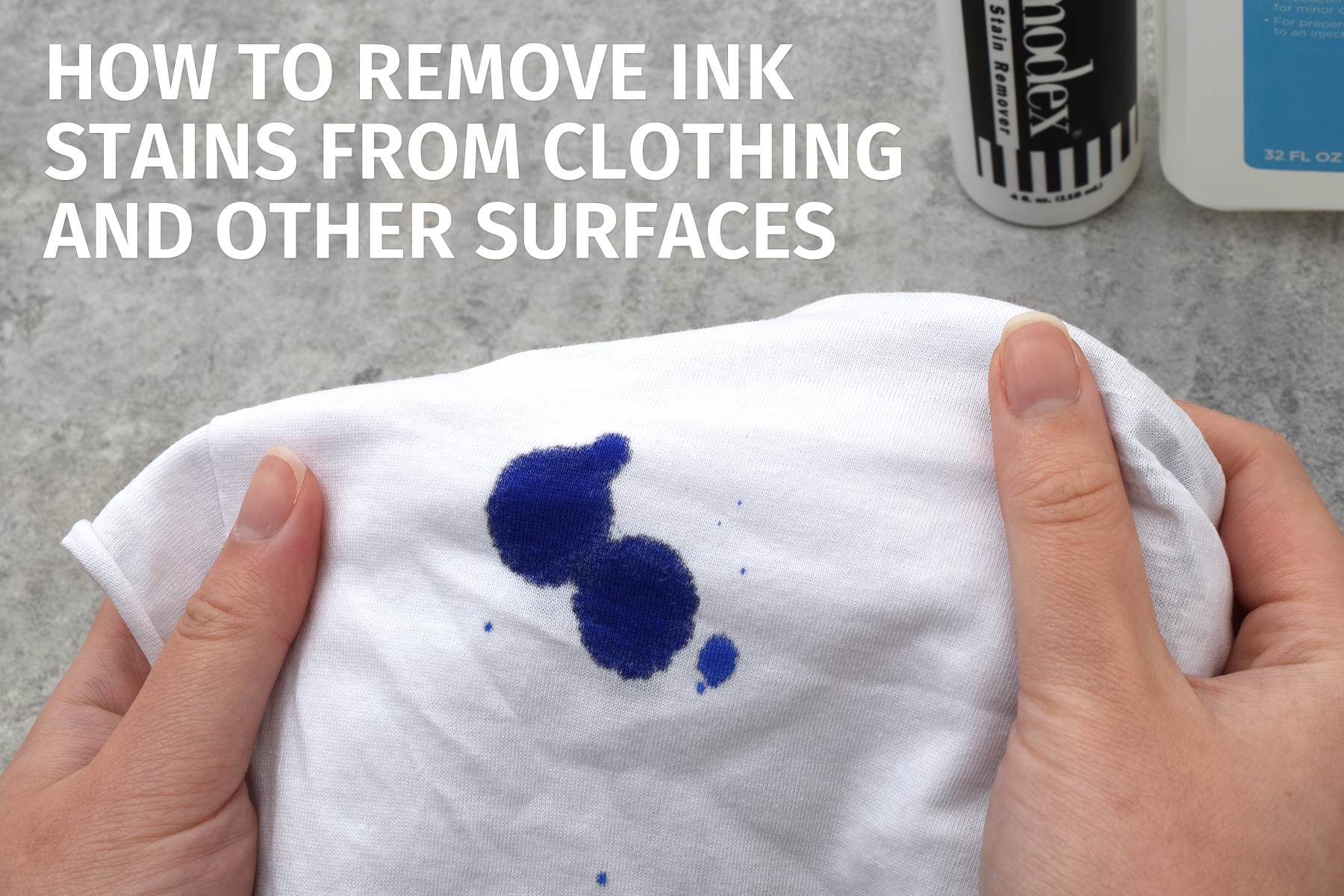Why Your Clothes Get Ink Stains
Understanding how ink interacts with fabric is crucial to effectively tackle the problem of ink stains. Ink is a complex mixture of pigments or dyes and a liquid carrier, which can vary from water-based to oil-based. When ink comes into contact with fabric, it can penetrate the fibers or remain on the surface, depending on the type of ink and fabric. The challenge of how to remove ink from clothing arises because certain types of ink, especially permanent and oil-based, can be stubborn and resistant to common cleaning methods.

Assessing the Situation
Before diving into the cleaning process, it’s important to identify the type of ink and fabric involved. Different fabrics, such as cotton, silk, or synthetic materials, have different absorption rates and reactions to cleaning agents. Similarly, ink types like ballpoint pen, fountain pen, or printer ink require specific approaches. Knowing the details can save your garment and prevent further damage.
:max_bytes(150000):strip_icc()/remove-ballpoint-permanent-water-based-ink-1900967-4af2cd3f483849c7aaf23dbe2caabc83.png)
Immediate Action
Time is of the essence when it comes to treating ink stains. Acting quickly can significantly increase the chances of successful removal. For water-based inks, blotting the stain with a clean cloth can help prevent it from spreading. If the ink is oil-based, a small amount of rubbing alcohol may be applied to break down the ink particles. It’s important to test any cleaning solution on a hidden area first to ensure it won’t damage the fabric.

Choosing the Right Cleaning Agent
How to remove ink from clothing also depends on the cleaning agents available. Common household items such as vinegar, milk, or even certain types of soap can be effective. However, for more stubborn stains, a specialized stain remover may be necessary. It’s crucial to choose a product that is safe for the fabric type and the specific ink stain you’re dealing with.

Gentle yet Effective Techniques
Applying the cleaning agent to the stain, it’s important to use a gentle motion to avoid rubbing the ink deeper into the fabric. A soft toothbrush or a clean cloth can be used to work the solution into the stain. After allowing the cleaning agent to sit for a recommended amount of time, rinse the area thoroughly and check if the stain has been lifted. If not, the process may need to be repeated.
Professional Help
Sometimes, despite our best efforts, the stain may persist. In such cases, seeking professional help from a dry cleaner who specializes in stain removal can be the best course of action. They have access to industrial-strength cleaning agents and techniques that can safely and effectively remove even the most stubborn ink stains.

Prevention is Better Than Cure
While learning how to remove ink from clothing is useful, preventing stains in the first place is even better. Keep ink-containing items away from clothing, and consider using protective covers on your desks and other surfaces where ink might spill. Educating yourself and others about the potential for ink stains can help avoid the frustration of dealing with them.
Conclusion
Ink stains can be a frustrating issue, but with the right knowledge and approach, they can be managed effectively. By understanding the nature of the ink and fabric, acting quickly, choosing the appropriate cleaning agents, and employing gentle techniques, you can significantly increase your chances of removing ink stains from your favorite clothes. And when all else fails, don’t hesitate to seek professional assistance.






